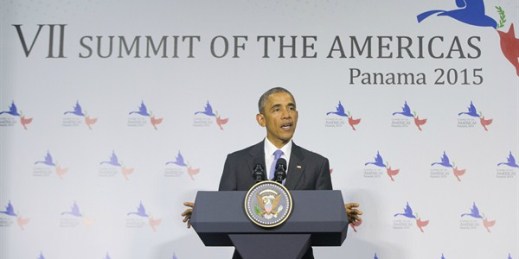
In this week’s Trend Lines podcast, WPR’s editor-in-chief, Judah Grunstein, and host Peter Dörrie discuss Central America’s “other” migrant crisis, the United States’ expanding military engagement across Africa, and reforming how the World Health Organization is financed. For the Report, Eric Farnsworth joins us to explore the limits of U.S. President Barack Obama’s pragmatic approach to Latin America. Listen:Download: MP3Subscribe: iTunes | RSS Relevant Articles on WPR: As New Migrant Streams Look North, Central America’s Crisis Moves South As U.S. Military Assistance in Africa Grows, How Can It Mitigate the Risks? The Pitfalls of the Pentagon Taking the Lead on […]


